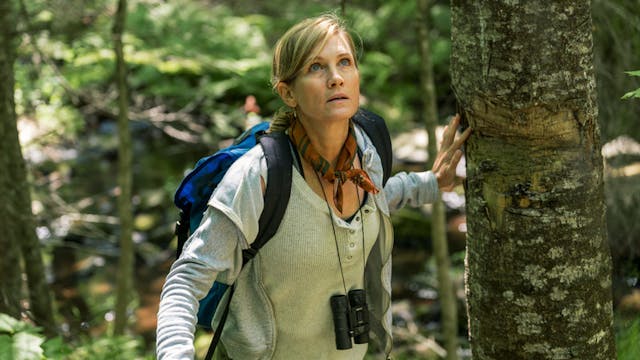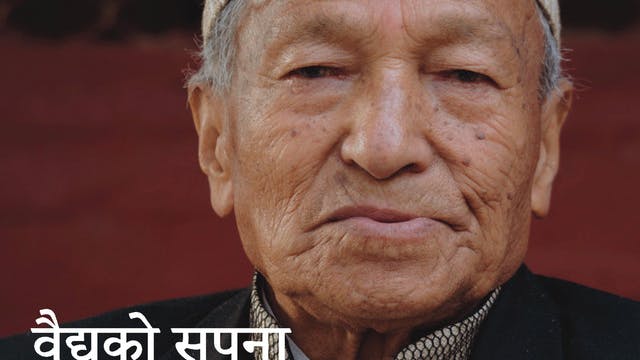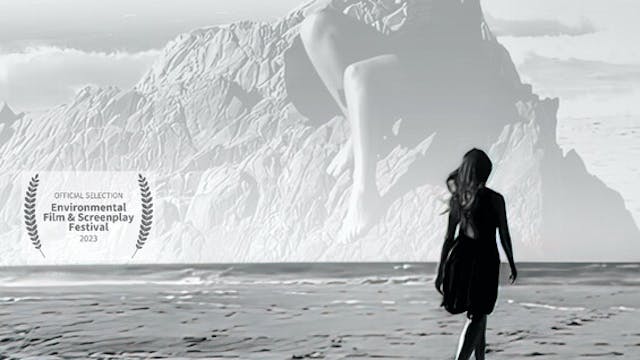GARDENING MARINE FORESTS short film, audience reactions (interview)
FESTIVAL AUDIENCE FEEDBACK VIDEOS
•
9m 13s
GARDENING MARINE FORESTS, 20min., Australia, Documentary
Directed by Stefan Andrews
What if people could be the secret to transforming ocean deserts into rich forests filled with an abundance of life? Join two marine scientists as they explore how a hands-on approach to marine restoration is working to revive marine kelp forests in South Korea.
Get to know the filmmaker:
1. What motivated you to make this film?
I was approached by marine researchers Adriana Vergés and Aaron Eger about the concept of the film and I was immediately hooked. What motivated me to be involved in this film was the urgent need to raise awareness about the importance of our kelp forests and to showcase how restoration efforts can make a significant impact in safeguarding these underwater forests for the future.
Our oceans are facing unprecedented threats due to human activities, and it is crucial that we take action to protect them. I believe that by highlighting the work of the Haenyeo and their role in restoring kelp forests, we can inspire people to take action and appreciate the cultural significance of the ocean and its inhabitants.
Through this film, I aim to inspire people to connect with the ocean and to understand the impact of our actions on kelp forests and why it is important to care for them. My motivation stems from a deep passion for kelp forests and a desire to share their beauty and wonder with the world, while also encouraging environmental responsibility.
2. From the idea to the finished product, how long did it take for you
to make this film?
We filmed on location in Korea over 10 days in May 2022 and the editing process was completed in November 2022. While I personally did a bulk of the editing over three week long sessions, we also enlisted the support of creative director at GoodChat Clare Lewis for support with the narrative and Composer and Sound Designer Keegan Meiring for a final mix of the audio.
3. How would you describe your film in two words!?
Kelp Restoration
4. What was the biggest obstacle you faced in completing this film?
We had always intended this film to be short (less than 20 minutes) and not too technical.
During the filming process we learnt that Korea’s approach to kelp forest restoration was mutli-faceted and it was a challenge to fit in everything we wanted. For example one component we were unable to fit into the film was the aquaculture techniques also used for conservation such as abalone being farmed and released back into the sea to assist with conservation efforts.
Throughout the filming process, the biggest obstacle we faced in completing this film was balancing the amount of information we wanted to include with the limited time we had. As we delved deeper into the topic of kelp forest restoration in Korea, we discovered that there were multiple approaches and techniques being used, making it difficult to cover everything comprehensively within the short time frame.
One particular challenge we faced was deciding which aspects of the restoration process to focus on in the film. We wanted to showcase the different methods being used, but also keep the film concise and easy to follow for a non-expert audience. As a result, we had to make some difficult choices about what to include and what to leave out.
One component that we were unable to fit into the film was the aquaculture techniques used for conservation, such as abalone farming and the release of stock back into the sea to assist with conservation efforts.
Despite these challenges, we worked hard to strike a balance between providing enough information to educate our viewers about kelp forest restoration in Korea, while also keeping the film engaging and accessible. In the end, we are proud of the final product and hope that it will inspire others to learn more about this critical issue.
5. What were your initial reactions when watching the audience talking
about your film in the feedback video?
The team were really touched by seeing the audience responses. One of our main goals with the film was to inspire people to care more about kelp forests, and the feedback video showed people were really touched by the story and totally got the challenge ahead and the importance of celebrating and encouraging conservation solutions to protect and restore the world's kelp forests.
6. When did you realize that you wanted to make films?
From the moment I embarked on my first major research expedition accompanied by a film crew, I knew I wanted to dedicate myself to creating ocean science communication films. The power of these visual stories to captivate audiences and raise awareness about the delicate balance of marine ecosystems has always had a profound impact on me.
As I observed others in this field and their approach, I was mesmerized by the way talented filmmakers could seamlessly merge scientific research and storytelling, creating a bridge between complex concepts and the general public. Over time I have realised that these films were not just about educating people, but also about inspiring them to take action to protect our oceans.
It became my mission to contribute to this vital field, using the art of filmmaking to convey the beauty, fragility, and importance of our underwater world. As I continued my journey, I sought opportunities to work alongside experienced filmmakers and researchers, honing my skills in both science and storytelling, so that I could effectively share the wonders of the ocean with the world.
7. What film have you seen the most in your life?
Blue Planet Series. As an educator I enjoy sharing this series with students because it is an excellent educational tool that can help students gain a greater appreciation for the beauty and complexity of the ocean and the vital role it plays in our planet's ecosystem.
8. What other elements of the festival experience can we and other
festivals implement to satisfy you and help you further your filmmaking
career?
Promotion on social media.
9. You submitted to the festival via FilmFreeway. How has your
experiences been working on the festival platform site?
It’s the best platform for film festival submissions.
10. What is your favorite meal?
Thai Green Papaya Salad
11. What is next for you? A new film?
Right now I’m working with the Great Southern Reef Foundation to connect, educate and inspire society to become active stewards of Australia’s kelp forests. My work involves creating short films, educational resources for schools and communicating the latest research across the region.
Up Next in FESTIVAL AUDIENCE FEEDBACK VIDEOS
-
THE ALKONOST short film, audience rea...
THE ALKONOST, 7min., USA, Metaphysical
Directed by Christianne Hedtke
A hiker goes on a spiritual quest to find a mythical bird—the Alkonost—believed to transmit the spirit of the universe in its song.
https://www.instagram.com/bananawho/ -
THE HEALERS DREAM short film, audienc...
THE HEALER'S DREAM, 15min., Canada/India, Documentary
Directed by Roxana Mares
Ayurveda is an ancient tradition of medicine that originated in India, with certain branches established and taught in Nepal. Various regions in Nepal, in particular the Kathmandu Valley, became centers of ancient know... -
THE LAST SEED short film, audience re...
THE LAST SEED, 118min., South Africa, Documentary
Directed by Andréa Gema Heunis
The Last Seed focuses on broad themes relating to the state of food and agriculture in Africa in the 21st century. Placing the struggle over the control of seed at the centre, it explains the processes that have led ...


